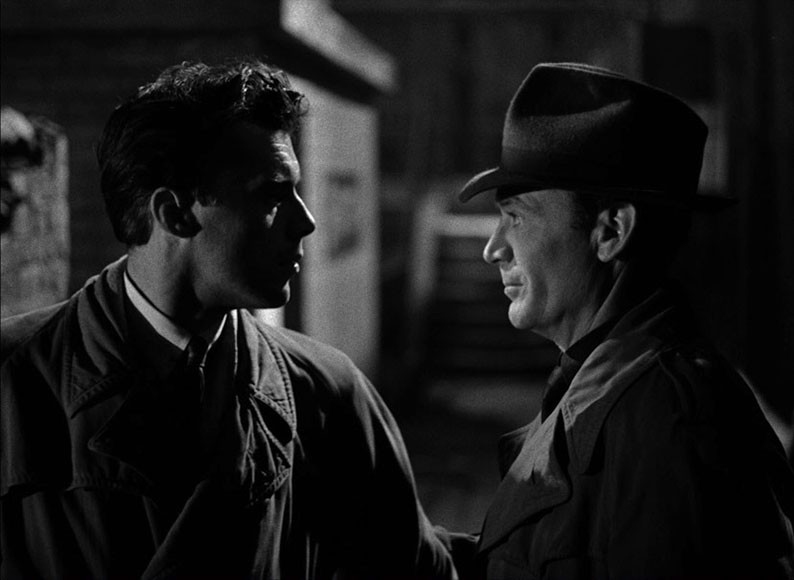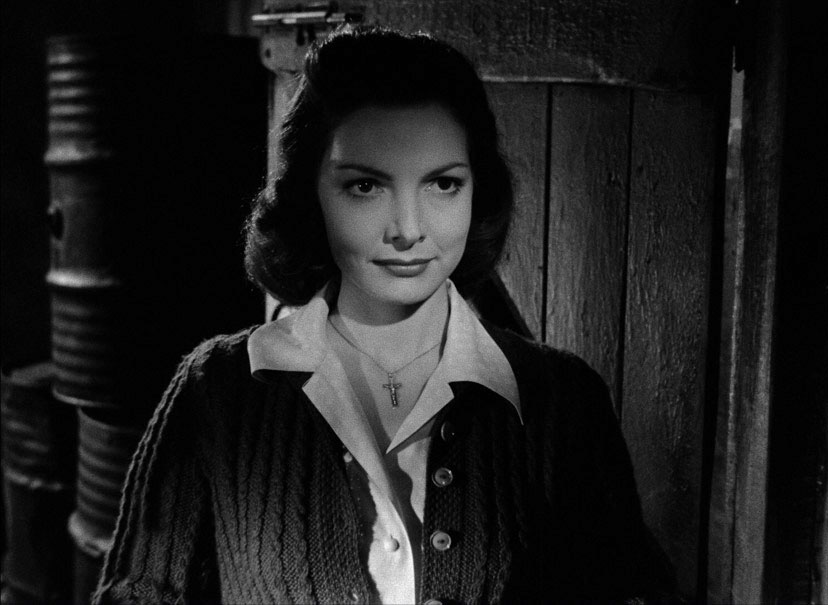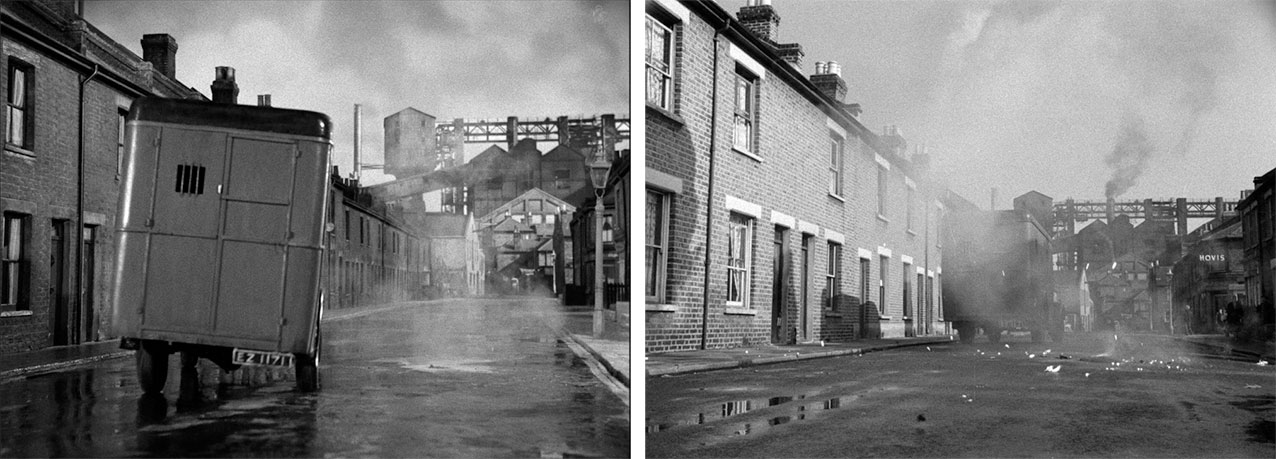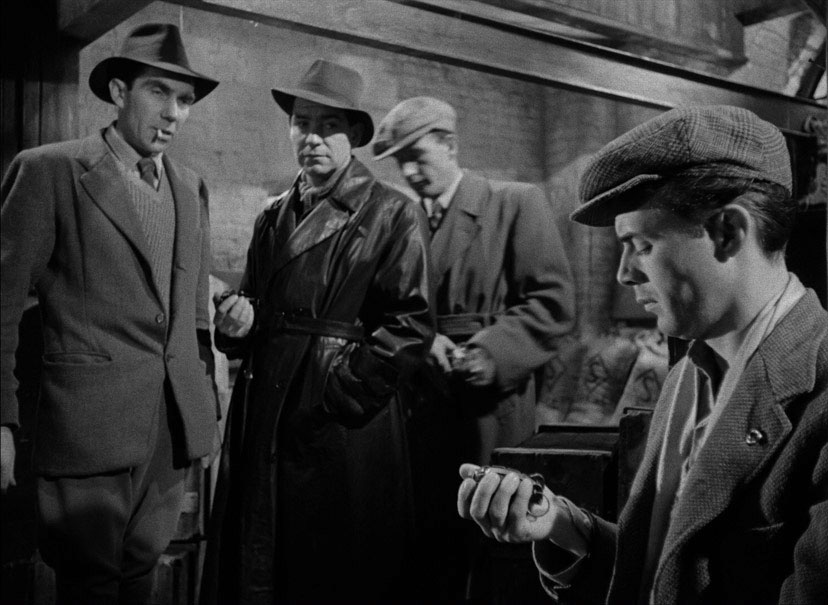| |
"It is now less easy to elide the achievement under patronising adjectives like "liberal" and "safe". Dearden's films offer, among other rewards, a fascinating barometer of public taste at its most nearly consensual over three decades." |
| |
BFI's Encyclopedia of Film 4th Edition on Director Basil Dearden
Edited by Brian McFarlane and Anthony Slide |
There was an actor, more of a star, who had played a radically diverse series of roles in his career which include a Greek King, a Moroccan Muslim and a Russian submarine captain. Let's add to that a Spanish Nobleman, an Irish cop and an ex-US cavalryman. In his entire career of ninety three credited roles with very little deviation, he maintained his distinctive voice and accent and I can find only 1961's Macbeth where that accent would be relevant. I guess if one of the biggest stars in the world wants every part he played to sound Scottish, then who are mere studio heads and directors to argue with Sir Sean Connery? Even Bond author Ian Fleming gave his English Etonian superspy some Scottish ancestry in his novels to justify Connery in the role whom he warmed to after initial disapproval. To be fair, Connery was a one-off. Is it expected of actors in accented parts to make the effort? I mean Kevin Costner's Robin Hood in Prince of Thieves was a southern Californian! Who knew? And how important to the film's effectiveness is that kind of verisimilitude anyway? Let's park that idea for a moment.

The Gentle Gunman is a story of two polarised views personified by two Irish brothers. One embraces violence which must have been prevalent in the actions of the majority of freedom fighters/terrorists and the other has come to the measured conclusion that a more peaceful solution is the only way forward. Expecting to find his brother Terry at the safe house where two other Irishmen are setting up a bomb to go off at a Tube Station at 11.30pm, Matt Sullivan arrives. With his brother absent, he is honour bound to deliver the bomb in his missing brother's stead. The three men agree that the point of all IRA bombs is to unnerve the British government and not the loss of civilian life. As a bare statement, it smacks of a soft justification too far. If you set bombs off, people will die. As Matt arrives at the station, a shadowy figure follows his every move. Is this an undercover policeman with a lead on Sullivan? Nervous, Sullivan plants the bomb at the end of the platform. Now this is London 1942, when the stiff upper lip took Nazi bombardment in it's non-quivering stride. But soon the suitcase is surrounded by Blitz sheltering children playing. Sullivan is about to intervene but one of the children hears it ticking and alerts a policeman, a man so crushingly stupid I felt he ought to be blown up there and then. He actually mentions the IRA and stands with the children literally holding a ticking suitcase. Matt flees now not able to intervene without being caught. With seconds to spare, the earlier shadowy figure rushes forward, grabs the suitcase and hurls it away to explode harmlessly in the tunnel. Say hullo to Matt's newly minted pacifist brother, Terry.
Not wishing to spoil any more beats in the narrative, I'll conclude this overview with the following. Terry has lived with the English for some time and come to the conclusion that apart from the accents (ha!), we're all people labouring under the same hardships and frustrations and that blowing things up is not an activity likely to change anyone's minds, particularly during a world war. There's a lovely irony to Terry's belief that a gun solves nothing but without a sidearm Terry would be not only simply the gentle man but an utterly ineffectual one at that. Pointing a Webley pistol at someone is the first recourse for most of the warring factions in this film. Back in Northern Ireland at Fagan's Garage, a committed and gruff IRA leader, Shinto, is indoctrinating a young boy whose widowed mother is fearful her son will sign up to the cause and go the same way his father did.
Let's address the non-accented pachyderm in the parlour. Everyone in the cast, besides the two brothers, sport real or well performed Irish accents. It's a shame that the two who don't are the two leads, Dirk Bogarde as Matt and John Mills as Terry. Every now and again, you get an italicized slice of accented words attempted by the two men but alas only very occasionally. There is a hint of it from both actors in most scenes but up against the real thing, it sounds like a C at 'O' Level against a Bachelor of Arts degree. There are reports that Bogarde wasn't happy being cast in this film so perhaps that was his way of expressing his disapproval. Slap my hand. That's probably untrue. Actors are professionals and get on with whatever the director asks of them. Dearden must have been content with the paucity of his leading men's accents. Given all this, it has the unfortunate subliminal effect that the bravest and most righteous Irishman in the movie is undeniably English. This rankles. Can you get any more English than John Mills? I don't sign up to the idea that actors have to share any specific traits with their character to play it well. Actors are hired to be convincing. But in this case, it felt tonally a little off that there are two Englishmen with dodgy accents at the centre of this very Irish story.

As for the rest of the cast, Robert Beatty as Shinto is suitably suspicious of his once fellow freedom fighter's change of heart. He has it in for Terry from the very start. Just to press home the point; Beatty's accent is quite believable considering he was born in Canada! To all intents, Shinto is the antagonist, not the police nor the British. I struggled to think where I knew him from and cheated to find out. He was the astronaut sitting with Floyd offered refreshments in the Moon ferry in 2001, the one who had the ham sandwich. By far my favourite performance, one that includes the subtlety of many layers, is provided by Elizabeth Sellars as Maureen. Starting the film as Terry's girl, she does an about face rebounding to Matt. But it's soon revealed that it's not the men she's in love with at all. As she paces pretending to care, her mother rightly observes that "I'm thinking it's death you're in love with." Seeing her eyes burning into Bogarde as he suits up for battle, practicing pointing his pistol, tells you almost everything she's feeling and a closer shot of her as she watches the extra bullets tumble into his palms places a yellow marker stripe (or should that be red?) over her perverse and almost erotic glory in prospective violence and death for the cause. This is great acting because she's telling us with her eyes what she wants no one to really know. She seems to care for nothing but conflict even consigning her brother to the fight as she smiles that smile and says breathlessly "Give Johnny my love, Matt. Tell him I'm proud of him." Yeah… More meat for the conflict grinder.
There's a double act that starts the film, two friends who find themselves on opposite sides of the conflict but still share a drink and a chess game. Joseph Tomelty as the Irish Dr Brannigan and Gilbert Harding as the very English Henry Truethome play the comedy in the conflict. The blustering Truethome insults his host time and time again while the charming Tomelty takes it and happily throws it back at him. They are the Greek Chorus of the film, the characters that set up the action at the start so we're not thrown into the deep end of the conflict. They reoccur (someone in the narrative is bound to have need of a doctor before long) but at the start you get the impression they there to reassure the audience. Barbara Mullen plays the grieving mother trying to keep her grown up son free from harm and he's earnestly played by James Kenney as Johnny. It's frightening how emboldened the idealistic youth can be swayed with just the gift of what else but his father's pistol from a manipulative Shinto. It's lovely to see the film director from The Exorcist Burke Dennings, the victim with his head turned completely around, actor Jack McGowan at such a young age. Now there's the real Irish deal.
With wonderfully moody black and white photography by Gordon Dines, the film looks stunning especially with the almost John Fordian stark Irish landscapes as backgrounds. I'm comparing Gunman with his American western black and white films. When Ford actually shot Ireland in The Quiet Man, the colour was so lush it almost dripped off the screen. In Gunman's interiors there are more than enough blacks and shadows to renew its noir membership. Noir also takes in the narrative in its definition. This one solidly qualifies as it's essentially a gangster film with added politics. Peter Tanner's editing is crisp and the film benefits from a running time of 5 seconds shy of 86 minutes.

In the grenade sequence (not exactly a spoiler if I keep it vague), I wondered why a short shot of flames after a close up of the grenade and two shots of the driver struggling at the wheel were used instead of the wider of the explosion? Well, there obviously wasn't an explosion. At 1 hour 14 minutes and 43 seconds, there's a shot of the van swerving to avoid what looks like a small puff of smoke. I am convinced but not 100% that this is a miniature shot, a very good one to be sure but the streets don't match. This shot is further down the road as the next time we come back to this shot, there are people on the pavements and scattered debris of some kind of blast with the smoke plume shadow on the houses. There's also smoke billowing out of a distant pipe at the real location and no smoke in the miniature shot. Also we are further back in the street than the first shot of the van which make little continuity sense. The lighting isn't consistent between the two shots either. It makes no difference to the effect (well, it does, not actually seeing the explosion) but I love old time effects and if that was a miniature, it's a damn fine example of one. Tonally there are a few hiccups but I was thoroughly entertained and convinced just enough by the brothers' relationship if not their aural consistency. Also the action is well-staged and in two instances really nail-biting. Great stuff, Ealing Studios and Studiocanal.
Presented in the 1.37:1 aspect ratio, Gunman looks splendid in moody black and white and with a particular nod to the actual stark country locations and how terrific they look not projected on a screen behind the actors or shot somewhere up the motorway from Ealing. It's also so clean it could have been shot yesterday. I love seeing older films restored with a little TLC. 35mm is such a wonderful medium, it rewards care and attention enormously.
The mono soundtrack is perfectly sound (!) with every word clear as a bell. John Greenwood's score's fidelity is good but with a loss of the lower bass you'd expect from the age of the materials.
There are English subtitles for the deaf and hard-of-hearing.
A Closer Look At The Gentle Gunman With Writers Matthew Sweet and Phoung Le* (33' 37)
This, unsurprisingly, is presented as a two person Zoom session. Film and TV critic Matthew Sweet's voice is most familiar to me from his Radio 3 film music programmes, The Sound of Cinema and Phoung Le is known for her Guardian reviews. Phoung Le is always brushing her hair away from her right eye but the hairstyle seems to want to default to a rather lovely, hanging eye-patch. No matter. Their debate is a lively one covering most aspects of this film and unsurprisingly the accents are front and centre. They reflect on the lead actors and how they are far from their comfort zone. They concur that it's as if the two stars were removed from the other characters who were more engaged. They move on to Maureen and her nationalistic desires and her fascination with the bullets and guns as mentioned in the main review. The Englishman Gilbert Harding (Truethome), according to Sweet, was quite the contentious figure in English culture which was fascinating. The conclusion is that the film is compromised by the actual subsequent history of the IRA movement and the ending, Sweet says, is all about going home to Ealing where it's all a lot calmer! A fascinating chat, well worth checking out.

Behind The Scenes Stills Gallery
I am so used to Indicator's presentation of such materials, I quickly realised that the pace of showing the photos is pre-determined here. Thankfully you can pause them for a good gawp. There are 12 black and white behind the scenes stills and some of the best I've ever seen for detail and entertainment value. These are not production stills but real behind the scenes shots, four of which someone scored at certain parts (as in marked with thin lines on the negative). Presumably this was to indicate the cropping preferred to get rid of extraneous crew and suchlike. From this scant bunch, it seems like the shoot was fun.
With the accent issue a bothersome nit-pick you soon get used to, The Gentle Gunman is an effective thriller with grit, intelligence and a real 'what will happen next?' aspect. It zooms along at a cracking pace and delivers sequences that stay in the memory. Yes, it does not delve into the complexities of 'the Troubles' nor offer any indication that it goes beyond getting Brits out of Northern Ireland. I know very little about the subject except for its complexity. I just remember growing up with bombs going off mostly in the capital and news reports saying those strange letters 'IRA' were responsible. But politics aside, this is a film about men with conflicting paths to their goals and as such it's a cracker. Well recommended.
|